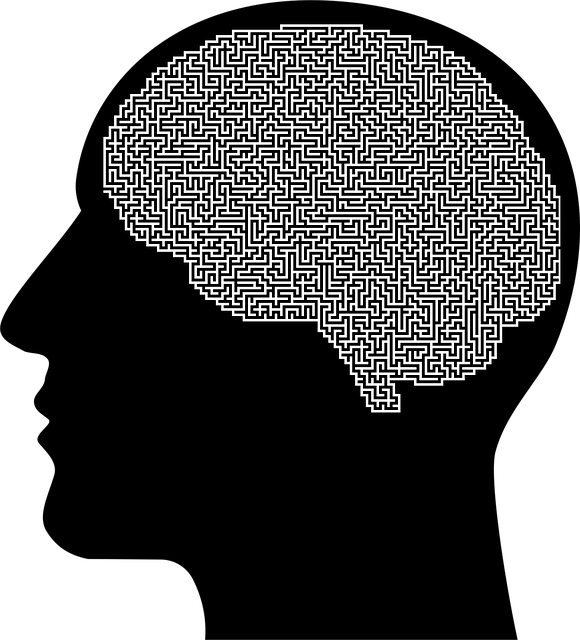Transpersonal psychotherapy is a holistic mental health approach emphasizing consciousness exploration and spiritual growth. It encourages clients to delve into inner experiences for self-discovery, healing traumas, cultivating unity, and personal transformation. Techniques like meditation, visualization, and ritual tap into higher awareness, fostering interconnectedness, inner wholeness, and enhanced well-being. By integrating spiritual dimensions, this therapy promotes mental resilience and provides a unique perspective on treatment, especially for trauma. Cultural considerations ensure tailored care, and practical application of transpersonal insights leads to conscious choices, improved relationships, and increased life satisfaction.
“Transpersonal psychotherapy, a holistic approach to mental health, explores the depths of human consciousness and spirituality. This unique therapy goes beyond traditional boundaries, focusing on the interconnectedness of mind, body, and spirit. In this comprehensive guide, we delve into the key principles, techniques, and benefits of transpersonal practice for enhancing mental well-being.
From understanding spiritual dimensions to integrating mindfulness, our article covers various aspects, offering insights into how this innovative approach can revolutionize mental health care.”
Understanding Transpersonal Psychotherapy: A Holistic Approach

Transpersonal psychotherapy is a unique approach within the field of mental health psychotherapy that focuses on the exploration of human consciousness and its potential for growth. It takes a holistic view, recognizing that an individual’s psychological well-being is deeply interconnected with their spiritual, existential, and transcending aspects. This therapy goes beyond traditional talk therapy by encouraging clients to delve into their inner experiences, including mystical or transcendent states, to gain profound insights into themselves.
The core principle of transpersonal psychotherapy lies in the belief that human consciousness extends far beyond personal identity. It explores the idea that individuals can access higher levels of awareness, leading to enhanced self-understanding and a deeper connection with something greater than themselves. Through various techniques, such as meditation, visualization, and ritual, clients are guided to uncover their inner resources, heal from past traumas, and cultivate a sense of unity with the world around them. This approach aims to facilitate personal transformation, foster spiritual growth, and promote overall mental health and well-being.
Key Principles and Techniques in Transpersonal Practice

Transpersonal psychotherapy is a unique approach that delves into the exploration of consciousness, spiritual experiences, and the potential for personal growth beyond the self. At its core, this modality emphasizes the interconnectedness of all things and the inherent wholeness within each individual. Key principles include the belief in the unlimited potential of human consciousness, the importance of subjective experience, and the acceptance of all aspects of the self, even those that may be considered dark or shadow aspects.
Techniques employed in transpersonal practice often involve meditation, mindfulness exercises, and psychedelic-assisted therapy. These tools facilitate a deeper understanding of one’s inner world, promote introspection, and encourage a shift in perception. Through these means, clients are supported to access altered states of consciousness, explore their dreams, and tap into their innate wisdom. By integrating these experiences into everyday life, individuals can cultivate greater self-awareness, enhance their mental health, and embark on a journey of profound personal transformation.
Benefits for Mental Health: Expanding Perspective

Transpersonal psychotherapy offers profound benefits for mental health by encouraging individuals to expand their perspective beyond the self-focused awareness typical in traditional therapies. This approach recognizes that human consciousness extends far beyond personal experiences and identity, tapping into a wellspring of collective wisdom and universal connections. By exploring these deeper layers, clients can gain insights into their inner selves, cultivate a sense of unity with others and the world around them, and develop a more expansive, integrated worldview.
This expanded perspective fosters mental resilience by promoting self-acceptance, empathy, and a heightened sense of purpose. It enables individuals to view challenges as opportunities for growth, fostering adaptability and flexibility in navigating life’s complexities. The transpersonal element of this therapy encourages exploration of spiritual dimensions, tapping into intrinsic sources of meaning and purpose that can provide profound healing and transformation for mental health issues.
Exploring Consciousness and Spirituality in Therapy

In transpersonal psychotherapy, exploring consciousness and spirituality plays a significant role in enhancing mental health and well-being. This unique approach goes beyond traditional talk therapy by acknowledging that our spiritual experiences and perceptions of consciousness can profoundly impact our psychological state. By delving into these realms, therapists help clients gain deeper insights into themselves, fostering a more integrated sense of self.
Through various techniques, such as meditation, mindfulness, and existential discussions, transpersonal psychotherapy enables individuals to navigate their inner landscapes, uncover hidden aspects of their psyche, and connect with their spiritual essence. This process can lead to profound personal growth, increased self-awareness, and a greater understanding of one’s place in the world. Integrating spirituality into therapy offers a holistic perspective on mental health, recognizing that healing often involves both the mind and the spirit.
Incorporating Meditation and Mindfulness Techniques

Incorporating meditation and mindfulness techniques is a distinctive feature of transpersonal psychotherapy, which aims to enhance clients’ overall well-being and mental health. These practices encourage individuals to focus inward, cultivating present-moment awareness and fostering a deeper connection with their inner selves. Through guided meditations and mindfulness exercises, patients learn to observe their thoughts and emotions without judgment, leading to increased self-acceptance and emotional regulation.
Mindfulness techniques help clients develop a non-reactive mindset, enabling them to navigate life’s challenges with greater clarity and composure. By integrating these practices into psychotherapy sessions, therapists can support individuals in achieving a sense of inner peace and balance, which is essential for personal growth and improved mental health.
Treating Trauma and Enhancing Resilience

Transpersonal psychotherapy offers powerful tools for treating trauma, a significant aspect of mental health. This approach recognizes that human experience extends beyond the individual self, allowing therapists to explore spiritual and transcendent dimensions in the healing process. By delving into these realms, patients can gain new perspectives on their traumatic experiences, fostering a sense of empowerment and resilience.
This form of psychotherapy enhances resilience by encouraging individuals to connect with their inner strength and inherent capacity for growth. Through exploring mystical or peak experiences, patients learn to tap into a profound wellspring of courage and adaptability. This, in turn, equips them with the skills needed to navigate life’s challenges, fostering mental health and well-being on a deeper level.
Cultural Considerations and Diverse Populations

In transpersonal psychotherapy, cultural considerations are paramount as it recognizes the profound impact that one’s cultural background can have on their mental health and healing process. Different cultures hold diverse beliefs about consciousness, spirituality, and the self, which directly influence how individuals perceive and express their emotions. Therapists must be sensitive to these differences and adapt their practices accordingly. For instance, in some cultures, a person’s connection to community and ancestral heritage is deeply intertwined with their sense of well-being, while in others, individualism and personal achievement might be prioritized.
When working with diverse populations, mental health professionals should strive for cultural competence. This involves understanding the historical context, social norms, and specific challenges faced by different ethnic, racial, and cultural groups. By incorporating these insights into therapy, therapists can create a more inclusive environment, ensuring that every client receives effective and respectful care tailored to their unique needs and background.
Integrating Transpersonal Insights into Everyday Life

Integrating transpersonal insights into everyday life involves applying the profound awareness gained during psychotherapy sessions to one’s daily routines and interactions. This process allows individuals to cultivate a deeper sense of self, enhance their relationships, and promote overall mental health. By internalizing transpersonal concepts such as interconnectedness, consciousness expansion, and peak experiences, clients can begin to perceive themselves and others in new, more compassionate and holistic ways.
Incorporating these insights into daily life encourages individuals to embrace moments of stillness and mindfulness, fostering a sense of presence and purpose. This shift can lead to increased resilience, better stress management, and a heightened appreciation for the intricate web of relationships that support our well-being. As clients integrate transpersonal practices, they may find themselves making more conscious choices that align with their authentic selves, ultimately enhancing their overall mental health and life satisfaction.
